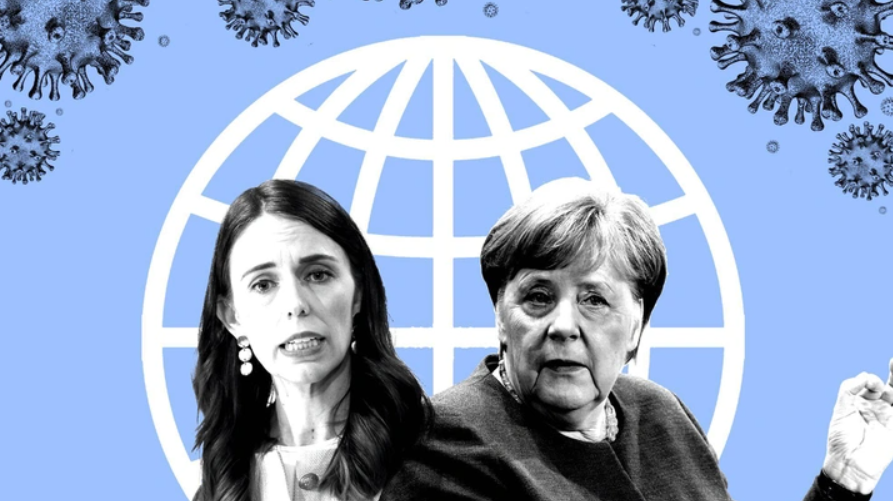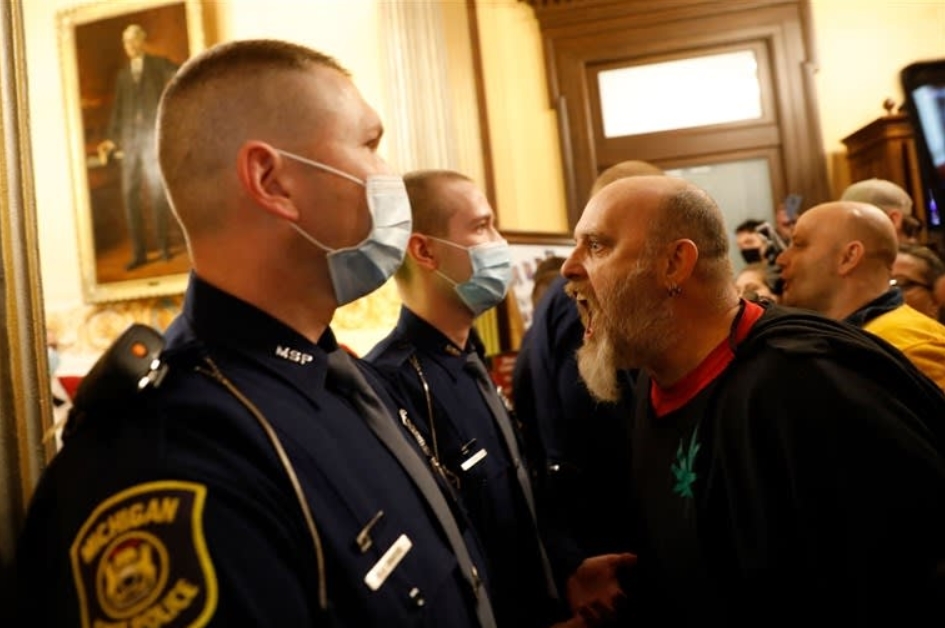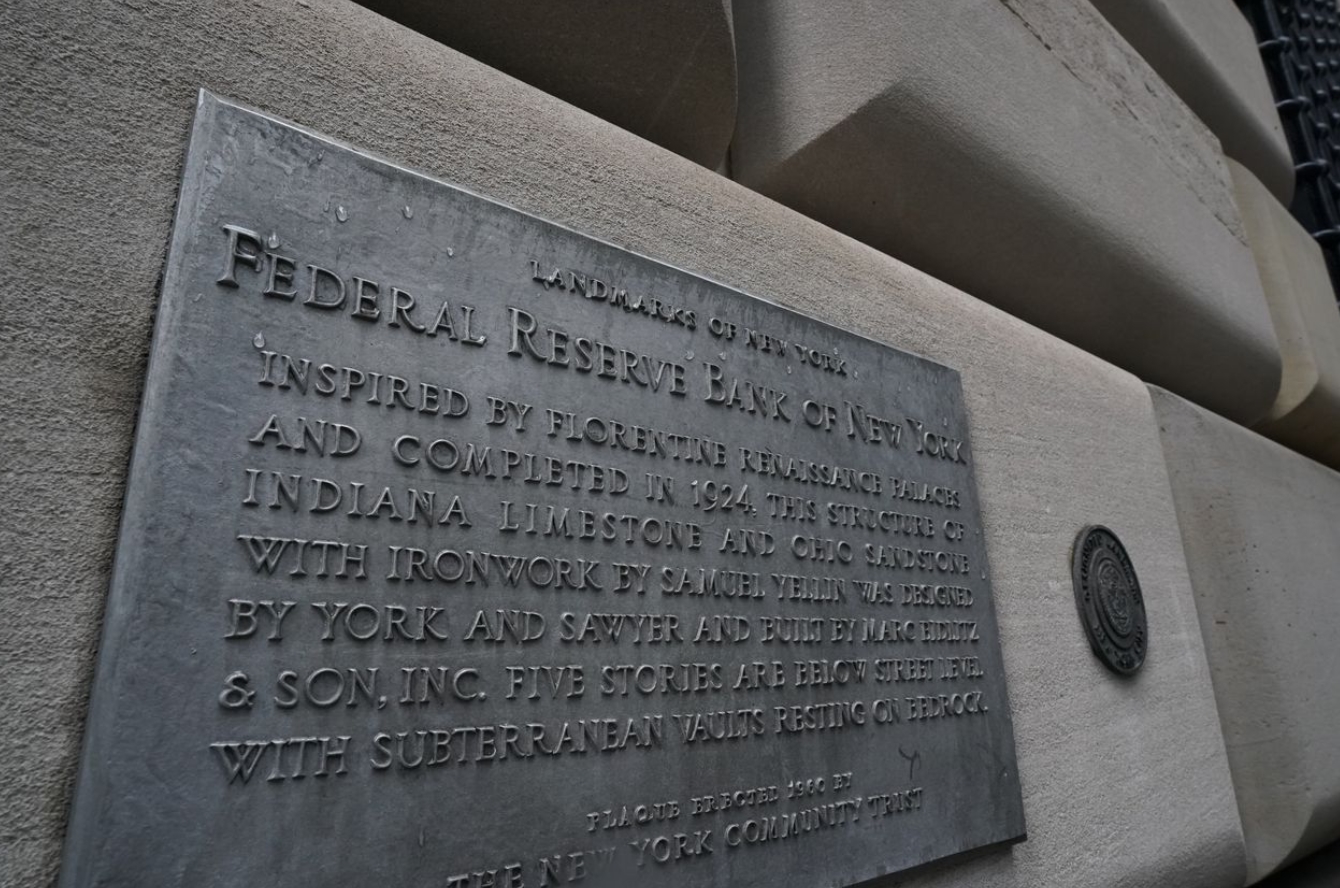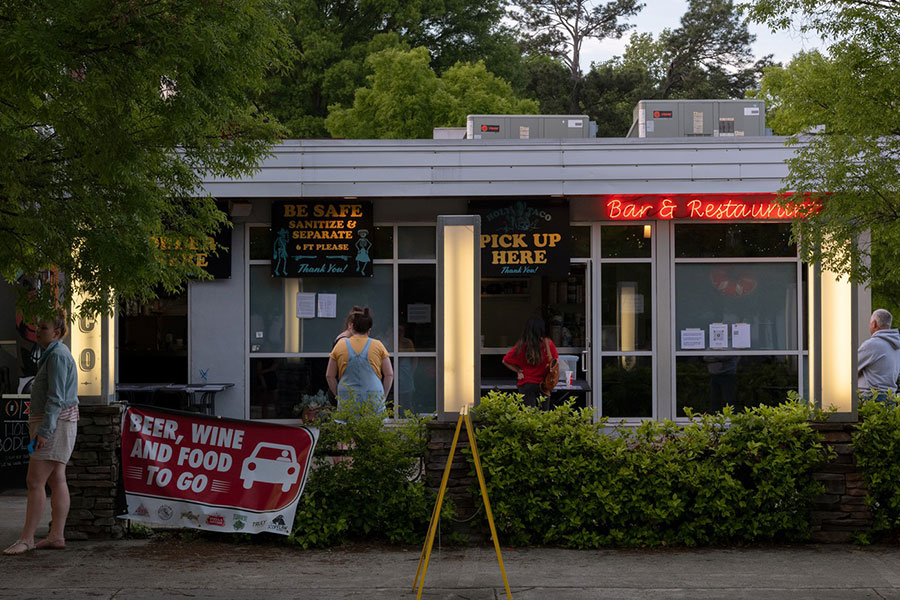Celerity
Celerity's JournalWomen Leaders Are a Symptom of Success
The true explanation for Germany’s and New Zealand’s coronavirus success isn’t simply the gender of who’s in charge.https://www.theatlantic.com/international/archive/2020/05/new-zealand-germany-women-leadership-strongmen-coronavirus/611161/

Choose your coronavirus fighter: Will it be Germany’s Angela Merkel and her calm explanation of the COVID-19 infection rate? Scotland’s Nicola Sturgeon and her government’s helpful, nuanced strategy documents? Or New Zealand’s Jacinda Ardern, with her empathetic Facebook Live addresses and decision to lock down the country early? All a bit mainstream for you, huh. How about Iceland’s Katrín Jakobsdóttir, who has offered free coronavirus testing to all the country’s citizens? Or Norway’s Erna Solberg, who held a press conference just for children, telling them it was okay to feel scared? Looking through this list, it’s tempting to reach the conclusion that women must be better at dealing with this crisis because of their gender. A similar narrative followed the 2008 financial crash. A world ruled by women was held up as a gentler, less aggressive one: If only Lehman Brothers had been Lehman Sisters, the crash would not have happened. This time around, commentators are again praising the “empathy and care” of female leaders. “It’s like their arms are coming out of their videos to hold you close in a heart-felt and loving embrace,” Avivah Wittenberg-Cox of Forbes argued.
This line of reasoning, however, is flawed—and potentially dangerous to women’s progress in politics. It’s not that women leaders are doing better. It’s just that strongmen are doing worse. Let’s start with the obvious example: Donald Trump. Over the past few weeks, the American president has discovered that much of his political playbook is useless against a respiratory illness. Unlike the press, the coronavirus cannot be browbeaten. Unlike whistleblowing officials, it cannot be fired or demoted. The virus does not care if you imply that it is unpatriotic. It is not diverted by untested cures, or dangerous ones you just invented. It does not read Twitter. Strongmen prosper as leaders because they promise certainty in uncertain times. They offer a simple enemy and present themselves as the only champion against it. The more control they have—by delegitimizing opposition leaders and the press—the better this strategy works. But this virus can’t be delegitimized. People will keep on coughing and dying, regardless of what Trump tweets about the virus.
Xi Jinping discovered this problem early in the outbreak, when the Chinese state tried to suppress doctors’ concerns about the new disease emerging in Wuhan. The disease went on spreading anyway. Iran appears to be desperately downplaying the extent of infections. Brazil’s Jair Bolsonaro dismissed the coronavirus as “a little flu or a bit of a cold” and attended an anti-lockdown protest in April. By that point, his own press secretary had already caught the disease. The Amazon’s biggest city, Manaus, is now being forced to dig trenches to accommodate the dead, and Brazil’s official death toll has surpassed that of China. (Around the world, the true cost of the virus will take months, or even years, to emerge. Both authoritarian and liberal countries might be hampered by poor record-keeping and a lack of resources for recording deaths, while the former are also likely to have a weak media which is unable to interrogate official death tolls.)
Really, this is an argument about leadership styles, which brings us back to the question of gender. Judging “women leaders” as a group is a fraught task, when they are still such a minority. Whenever Merkel has attended a G20 meeting during her 14 years as chancellor of Germany, she has rarely faced a line for the ladies’ toilet. She is currently the only woman leading one of the world’s 20 largest economies. If physical meetings were happening right now, she would be fighting only with European Commission President Ursula von der Leyen for a spot at the hand dryer. So any talk of “women leaders” suffers from a small sample size. In modern times, China has never had one; neither has Russia, Saudi Arabia, Italy—or the United States. At the start of the year, only 15 of the 193 United Nations countries were led by women, according to Axios, and that has now dropped to 13. That means female leaders are inevitably compared with one another, and with their rare female predecessors, even when it’s not appropriate. Britain’s former Conservative prime minister Theresa May was branded the Iron Lady 2.0—a second Margaret Thatcher—even though it quickly became apparent that, in her work ethic and communication problems, she was much more like Labour’s Gordon Brown.
snip
To Republicans, Coronavirus Deaths Are Now Simply The Cost Of Doing Business
In America, dead school children are the cost of unfettered gun rights, and dead grandparents are now the cost of keeping the Dow Jones afloat.https://thebanter.substack.com/p/to-republicans-coronavirus-deaths

Nothing to see here
As a Brit living in America, nothing has made me feel more disconnected from my adopted home than the endless stream of senseless gun deaths and the government’s total inability to act on it. That was until the Coronavirus came to the United States. As the virus tears through the country leaving a truly astonishing trail of death and destruction in its path, the Republican Party has reached truly new levels of sociopathy, and is now actively working to ensure more people die in the coming months. Trump and much of the GOP initially did not take the Coronavirus seriously, and instead spread false information that the virus wasn’t a threat to the US and would, as Trump claimed magically “disappear”. As the virus got worse and disease and medical expert urged Americans to stay home, Republicans around the country made it clear they would not be allowing liberals (scientists and doctors) to dictate what they could and couldn’t do: Republicans went swimming in the Senate pool to prove to their manliness, refused to close down beaches and public areas that would dangerously spread the virus, and would not issue stay at home orders in their states. This despite images of overrun morgues from around the world flooding in, and desperate pleas from doctors to take the threat seriously.
https://twitter.com/Rschooley/status/1239021492517474309
As the death toll continued to rise and hospitals were inundated with severely sick patients and not enough medical equipment to support them, Republicans were forced to acknowledge reality and accept it was not a Democrat inspired hoax to unseat the president. Rather than take action to stop people dying however, they used the climate change playbook to pivot to a new, equally monstrous position: the Coronavirus was real, but there was nothing they could do about it. This despite the successes seen in places like Canada, Australia and New Zealand, where the disease was controlled and the governments able to ensure citizens were given adequate financial resources to survive. “There are more important things than living,” Texas Lt. Gov. Dan Patrick told Tucker Carlson as he pleaded with grandparents to sacrifice themselves for the sake of the stock market.
Trump’s America
In Trump’s America, perceived economic success is everything, even if it means more deaths than anywhere else on earth. With coordinated, armed astroturf “freedom protests” popping up around the country, Trump and the Republicans Party are now framing their desire to risk lives as a mark of their patriotism and dedication to “freedom”. Just as thousands of gun deaths are accepted each year as the cost of freedom, hundreds of thousands of Americans will now perish in order to preserve the machinations of the Dow Jones. Reported the Guardian this week: A leaked internal White House report predicts the daily death toll from the virus will reach about 3,000 on 1 June, almost double the current tally of about 1,750, the New York Times revealed on Monday. Yet at the same time, Trump has scrapped daily coronavirus task force briefings and marginalized his medical experts in favour of economic officials flooding the airwaves to urge states to reopen for business – even amid rising infection rates….
Joe Lockhart, a former White House press secretary, said: “Almost by necessity, they are changing their strategy. They are pinning all of their hopes on getting the economy reopened, using their economic spokespeople and hoping that the American public has a high toleration for the death count moving up. It sounds terrible to say and even worse to do. “I think you won’t be seeing much from the scientists any more – the news is that bad – and they’re just going to turn a blind eye to the fact that what they’re doing is going to kill more people, because ultimately the way the president makes decisions is what’s good for his re-election.” So dedicated to pressuring the country into reopening before the pandemic is over are the GOP that Mitch McConnell has suggested blue states — the states taking the Coronavirus seriously — should not receive financial aid from the government. "I think this whole business of additional assistance for state and local governments needs to be thoroughly evaluated," McConnell told radio host Hugh Hewitt last month. "There's not going to be any desire on the Republican side to bail out state pensions by borrowing money from future generations."
snip
"We keep ordering millions of dollars of PPE... that keeps getting HIJACKED before it gets to the
City of Phoenix" - Phoenix Fire Chief Kara Kalkbrenner. We are trying to get answers about who is disrupting the supply chain.
https://twitter.com/JoeDanaReports/status/1250516183364759552
He doesn't care about truth or reality. He invents his own and tries
to bend people to his will. His goal is the utter destruction of truth. He creates constant chaos via non-linear warfare and then utilises the resultant fog of war to institute reflexive control. It is classic Russian tactics. I have posted many times on the subject here.
The modern master of it helped Putin gain power and increase it. Vladislav Surkov, aka The Grey Cardinal of the Kremlin. Trump is a low rent version of their playbook. He can afford to be. The American RW are the easiest people in the advanced world to gaslight and sheepdog. It is child's play, especially if they are fundie xians, as they are thus already 100% bought in to the oldest, largest long term con in history.
Breaking: Massive fire at the Abbco Tower in Sharjah, UAE. The residential skyscraper is 48 stories
https://twitter.com/PMBreakingNews/status/1257752420114931712
Ben Shapiro trying to sell his thin, tendentious right-wing rhetoric off the back of a brilliant
accomplished black woman is peak Fox News. The 1619 Project is the most important addition to US history in a generation. Shapiro should actually read it.https://twitter.com/VABVOX/status/1257676480026488832
New York Fed Paper Finds Pandemic a Century Ago Fueled Nazi Rise
A New York Fed paper examines how the German political system reacted to the global influenza pandemic that struck between 1918 and 1920.https://www.wsj.com/articles/new-york-fed-paper-finds-pandemic-a-century-ago-fueled-nazi-rise-11588629945

Nazis rose to power in Germany in part because of dislocations caused by a mass-death pandemic a century ago, research published by the Federal Reserve Bank of New York on Monday said. The paper, written by bank economist Kristian Blickle, examined how the German political system reacted to the influenza pandemic that struck the world between 1918 and 1920. Those events have been back in the world’s consciousness as nations attempt to navigate the coronavirus crisis. The current crisis has resulted in large death tolls, profound economic dislocations and great political uncertainty, at a time when many nations have seen the rise of nationalist political movements that seek to reverse decades of economic and political international linkages.
A century ago, “influenza deaths themselves had a strong effect on the share of votes won by extremists, specifically the extremist national socialist party,” the paper said in reference to the Nazi party, led by Adolf Hitler, who became chancellor of Germany in 1933. “This effect dominates many other effects and is persistent even when we control for the influences of local unemployment, city spending, population changes brought about by the war, and local demographics or when we instrument for influenza mortality,” Mr. Blickle wrote. The changed voting patterns specifically appeared to boost Nazis over other movements, the paper said. “The same patterns were not observable for the votes won by other extremist parties, such as the communists.” Germany’s economy was in terrible shape in the wake of World War I and its defeat.
But it wasn’t just the economic environment that helped fuel the rise of the Nazis and the plunge of the world into a second global war. Nazis got an electoral boost out of the pandemic in part from who was hit. Younger people fared worse in that crisis, and that “may also have spurred resentment of foreigners among the survivors (as has happened in past pandemics), driving voters towards parties whose platform matched such sentiments.” The effect was also stronger in areas where anti-Jewish sentiment had deep roots. “The correlation between influenza mortality and the vote share won by right-wing extremists is stronger in regions that had historically blamed minorities, particularly Jews, for medieval plagues,” the paper noted.
So far, the influenza pandemic outstrips anything seen in the current coronavirus episode. According to the Centers for Disease Control and Prevention, some 50 million people around the world died from the illness. While estimates of the coronavirus crisis are hard to come by given still unsettled attempts to find out who is sick, nearly a quarter-of-a-million people around the world have likely died from Covid-19, the illness caused by the coronavirus. But even as the death tolls are widely divergent, the coronavirus has yet to run its course, and there is no clarity on when it will. At the same time, economies are reeling from attempts to limit the spread of the disease, with the U.S. on track to see levels of unemployment last seen in the Great Depression. Government finances are under huge strain, too, as heavily armed protesters have staged protests in state capitals that have alarmed many observers.
snip
The Pandemic Will Change American Retail Forever
The big will get bigger as mom-and-pops perish and shopping goes virtual. In the short term, our cities will become more boring. In the long term, they might just become interesting again.https://www.theatlantic.com/ideas/archive/2020/04/how-pandemic-will-change-face-retail/610738/

Last weekend, I walked a mile along M Street in Washington, D.C., where I live, from the edge of Georgetown to Connecticut Avenue. The roads and sidewalks were pin-drop silent. Movie theaters, salons, fitness centers, and restaurants serving Ethiopian, Japanese, and Indian food were rendered, in eerie sameness, as one long line of darkened windows. Because the pandemic pauses the present, it forces us to live in the future. The question I asked myself walking east through D.C. is the question so many Americans are all pondering today: Who will emerge intact from the pandemic purgatory, and who will not? In the past three weeks, I’ve posed a version of that question to more than a dozen business owners, retail analysts, economists, consumer advocates, and commercial-real-estate investors. Their viewpoints coalesce into a coherent, if troubling, story about the future of the American streetscape.
We are entering a new evolutionary stage of retail, in which big companies will get bigger, many mom-and-pop dreams will burst, chains will proliferate and flatten the idiosyncrasies of many neighborhoods, more economic activity will flow into e-commerce, and restaurants will undergo a transformation unlike anything the industry has experienced since Prohibition. This is a dire forecast, but there is a glimmer of hope. If cities become less desirable in the next few years, they will also become cheaper to live in. In time, more affordable rents could attract more interesting people, ideas, and companies. This may be the cyclical legacy of the coronavirus: suffering, tragedy, and then rebirth. The pandemic will reset our urban equilibrium and, just maybe, create a more robust and resilient American city for the 21st century.

1. THE BIG ACCELERATION
To see how the pandemic is already reshaping American retail, you don’t even have to go outside and count storefronts. Your receipts and credit-card statements tell the whole story. On Thursday, the U.S. Commerce Department reported that retail spending in March collapsed by the largest number on record. Travel spending—including on airlines, hotels, and cruises—is down more than 100 percent, if you include refunds. Department stores and clothing stores are facing an extinction-level event after having experienced years of decline. Pockets of resiliency and even strength include grocery stores and liquor stores, which in March had their best month of growth on record. Home-improvement spending is up as well. Some of these changes are violent interruptions to modern life, like the closing of gyms and cessation of sit-down restaurant service. But in the long term, COVID-19 probably won’t invent new behaviors and habits out of thin air as much as it will accelerate a number of preexisting trends.
One obvious example is that the pandemic is accelerating the retail reckoning. Over the past 50 years, the number of American malls grew almost twice as fast as the U.S. population, to the point that in 2015, the U.S. had 10 times more shopping space per capita than Germany. Such abundance makes no sense in the age of Amazon. Overleveraged, overbuilt, and oversprawled, American retailers had a long way to fall as the country moved toward online shopping. In 2017, and again in 2019, physical-store closures reached an all-time high, led by the decay of suburban totems like Sports Authority and Payless. The year 2020 may bring the death of the department store, marking the end of that 200-year-old retail innovation after decades of decline. Macy’s has furloughed more than 100,000 workers. Neiman Marcus has filed for Chapter 11. More legacy department stores and apparel retailers will almost certainly follow them to bankruptcy court or the corporate graveyard. As these anchor stores shutter, hundreds of malls that were already wobbling in 2019 will be knocked out in 2020.
snip
a lot more at the link at the top
How To Thrive During COVID-19 By Jared Kushner
"As my father was always fond of saying, whatever doesn’t kill you makes you richer."As told to Rich Herschlag
https://thebanter.substack.com/p/how-to-thrive-during-covid-19-by
As I’ve so capably pointed out before, coronavirus was a hoax until it wasn’t. Now that it isn’t, I’ve answered my country’s call once again. Fresh off unadulterated triumphs bringing peace to the Middle East and ending the opioid crisis, I’ve been tapped to rid the nation of SARS-CoV-2, which I reserve the right to resume calling a hoax right up till the moment I get it. Crises are all about being adaptable. Over the past several weeks I’ve heard all sorts of complaints from Americans about everything from lack of food to lack of money to difficult living conditions, so I thought I’d take a few minutes to discuss that old American virtue called resourcefulness that seems to have been all but forgotten lately.
Take the recent Jewish holiday. We were in D.C. in the middle of lockdown and Ivanka wanted to spend this joyous occasion at her father’s golf club in Bedminster, New Jersey. She had a point. The maror (horseradish) is better in Jersey and the fairways wider, so we really had a religious responsibility to head north. We could have whined ad nauseam like everyone else, but instead we sucked it up and flew a Cessna Citation to Somerset Airport. Looking down that day at the Northeast Corridor region and all its misery we considered the many sacrifices we were making on behalf of the country: The gas stations we were avoiding contaminating had we driven up 95. The truck stops and restrooms we have never used once in our lives but have heard are disgusting. The inevitable social distancing violations at a backed up E-ZPass lane.
These sacrifices, however, barely crossed our minds as we soared through cloud cover and bought a foreclosed low income housing development just below somewhere in downtown Wilmington. Whatever sorrows lay on terra firma, we chose the high road. Onward and upward. Escaping the often contentious and petty national capital with only the clothes on our back and an unlimited taxpayer funded expense account, we prayed for a smooth flight with uninterrupted 5G reception. With the fake media at our heels and the pandemic walls closing in fast, we fled in the nick of time much like the ancient Hebrews leaving Egypt. Looking down one last time at closed stores and empty mall parking lots, we knew that we had surely passed over. Once in Bedminster, our family faced the same sort of hardship most quarantined families have faced—being in the same room together for more than an hour.
But rather than fold or feud like so many other families, we reached deep into our souls and found practical solutions. While I watched Tiger King in the main screening room, Ivanka watched The Bachelorette in the south screening room, while the kids and their Ecuadorian nanny caught Peter Rabbit 2 in the children’s theater. And then, suddenly, a wave of gratitude swept over me. I realized that if not for this forced togetherness I might never have gotten to really know the east wing of the compound. By midweek the kids were getting bored, so Ivanka and I did what any good parents would do in this dire situation—fire the homeschool teacher and bring in a bunch of clowns and jugglers. Naturally, we kept the clowns six feet apart from the jugglers. We did have a little mishap with the sword swallower, but we took the kids aside afterward and explained to them in age appropriate language that the performer was a bad man who didn’t support the President, and sometimes bad things happen to bad people.
snip
NYT : Two Medical Systems, Two Pandemic Responses (Canada versus the US)
A health economist who has taught on both sides of the border examines the difference between Canada and the United States.https://www.nytimes.com/2020/05/01/world/canada/america-canada-coronavirus-comparison.html
After lamenting in a recent Canada Letter about my inability to find an expert who could offer an informed comparison of how the medical systems in Canada and the United States were responding to the coronavirus pandemic, I soon heard from Professor Peter Berman. He is particularly well placed for such an assessment, after spending 25 years teaching at Harvard, most recently as a professor of global health systems and economics at the T.H. Chan School of Public Health. Professor Berman is now based in Vancouver as the director of the school of population and public health at the University of British Columbia’s medical school.
I’ll begin the comparison with some numbers. Massachusetts, the previous home of Professor Berman, has a population of 6.8 million and British Columbia has slightly over 5 million residents. But the toll of the pandemic on the two areas has been significantly different. As off Friday afternoon in Massachusetts, there have been more than 62,000 reported cases and 3,562 deaths, or 52 fatalities for every 100,000 people. In B.C., there have been just 2,112 reported cases and 111 deaths or just two victims for every 100,000 residents.
Professor Berman cautioned that those numbers reflect a wide variety of factors outside the medical system like the demographic makeup of different cities and regions. But he noted that near his old office at Harvard “there must be thousands of the world’s best hospital beds and there are three top international top hospitals within a couple blocks.” So with resources like that, why is there such a great disparity with British Columbia?
Part of the answer, for Professor Berman, can be found in how hospitals are funded and managed by the public health care systems of Canadian provinces. “The kind of system we have in Canada — and I think in British Columbia we have a pretty well-run version of it — allows the public health authorities to essentially commandeer the hospital system. It’s a command and control thing, it’s not a coordination thing,” he said. In the United States, Professor Berman said, hospitals are largely private institutions without any overall control.
snip
Profile Information
Gender: FemaleHometown: London
Home country: US/UK/Sweden
Current location: Stockholm, Sweden
Member since: Sun Jul 1, 2018, 07:25 PM
Number of posts: 43,314